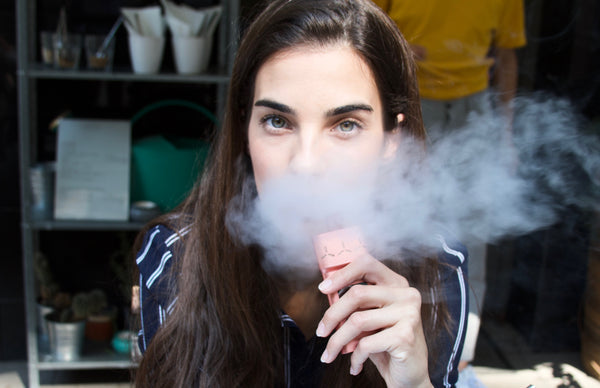5 Reasons to Choose a Dry Herb Over a Wax Vaporizer

Vaping has been growing in popularity over the past decade, but it wasn’t until the last couple of years that it gained worldwide momentum.
According to BBC research, there were 41 million vapers around the globe in 2018, which is a whopping 34 million more than in 2011. A survey by Reuters found that around 3.2 million people in the UK now vape.
With the growing demand for vaping devices, more and more different vape pens, e-cigarettes, portable vaporizers, and other devices are hitting the market.
Needless to say, that makes choosing the right one for your needs a bit overwhelming. Luckily, we are here to help you make an informed decision.
We’ll look into some of the most common types of vaporizers – dry herb and wax vaporizers.
Here are the top reasons to choose the former.
Lower Potency

The wax used in various vaporizers is also known as concentrate. If we’re talking about vaping cannabis, concentrate or wax will contain a high concentration of cannabinoids, particularly THC. That means it’s much more potent.
If you’re a beginner, a few puffs could quickly have you stuck on the couch for hours until the effects start wearing off a bit.
You can avoid that with a dry herb vaporizer. The potency will depend on the strain of the herb and the amount you use. As opposed to wax, you can control the dosage and have a more pleasant experience.
Cooler Temperatures
Different vaping devices require different vaping temperatures, depending on their type.
Wax vaporizers typically use higher temperatures – between 232°C and 343°C. On the other hand, 157°C is usually the starting heat with dry herb vaporizers.
Vaping at higher temperatures produces more intense effects that last longer. Lower temperatures provide you with a more refreshing and less potent vaping experience.
Just like with the potency, this is also a matter of personal preference.
No Need to Change the Coil

Wax vaporizers have a small chamber with a heating coil that melts down the concentrate to turn it into vapor. Dry herb vaporizers contain a slightly different chamber in which you load your herbs for heating.
Since wax leaves a sticky residue, you need to regularly replace the coil, even when you thoroughly clean it after each use. The coil simply won’t last longer than the vaporizer.
The heating chamber in your dry herb vaporizer will last as long as the vaporizer does with proper care. You won’t need to replace it, because you won’t have to deal with any residue buildup whatsoever.
Vaping Unprocessed Herbs
Wax or concentrates are processed herbs, so you can’t really be 100% certain of the ingredients. That’s why you have to conduct thorough research to make sure you choose a credible and reliable provider who offers products tested by a third-party lab.
On the other hand, dry herbs are usually unprocessed, and you can have complete control if you grow your own. Of course, there are many organic growers out there, so you can easily find perfectly safe herbs to vape.
Once more, this is a matter of preference, but dry herb vaporizers are definitely a better choice if you’re worried about potentially inhaling dangerous chemicals.
Easier Maintenance

As already mentioned, the wax is sticky, so you can have quite a mess on your hands when loading your concentrate into the chamber. You also need to clean the vaporizer after every use thoroughly. It would help if you scraped away the wax to make sure you don’t mix the burnt residue with the fresh extract.
Maintaining a dry herb vaporizer is much easier and cleaner. The loading process is incredibly simple, as all you need to do is grind the herb and place it into the heating chamber.
It would be best if you also cleaned it after each use, but the process isn’t nearly as messy as with a wax vaporizer.
If you like experiencing more intense vaping effects and prefer a wax vaporizer to its dry herb cousin, then you probably won’t find the loading and cleaning process as a deal-breaker.
As you can see, dry herb and wax vaporizers are quite similar, but they do differ in some notable areas. In the end, when you consider the differences between them, your personal preferences will help you make the right choice for your needs.
If you don’t like a too-potent vapor, want more control over the temperature, prefer unprocessed herbs, and don’t want to deal with complicated maintenance and coil replacements, then choose a dry herb vaporizer over its wax counterpart.



